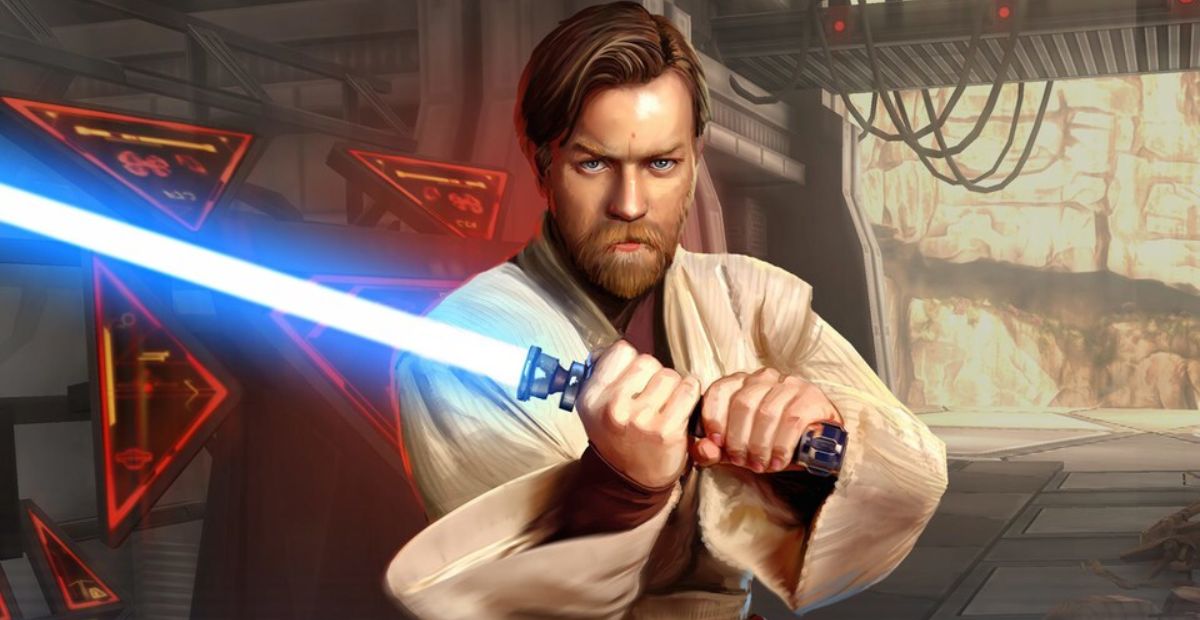Have you noticed how Obi-Wan is always the one getting sent out alone? And we’re not talking side quests, these were the kinds of missions that could shift the entire war. In the prequels alone, he’s the one who’s sent to investigate the clone army on Kamino, and later, he’s sent solo to Utapau to face off against General Grievous, the Jedi killer with a lightsaber collection.
It keeps happening, and it’s not a coincidence. So what made Obi-Wan the Jedi they trusted to handle these high-stakes jobs without backup?
Obi-Wan Earned the Council’s Trust to Handle Critical Missions Alone
One of the biggest reasons Obi-Wan kept getting sent on high-stakes missions alone is that the Jedi Council trusted him completely. And that trust came from his steady, calm presence—even in the most intense situations.
There’s a great example of this in Star Wars: Revenge of the Sith by Matthew Stover.
Let’s go back to the moment before Obi-Wan was sent to face General Grievous on Utapau. This wasn’t some casual assignment—they were sending a single Jedi to confront the Separatists’ most dangerous warrior. And according to the Revenge of the Sith novelization, the Jedi Council seriously considered who was best for the job.
Mace Windu had already fought Grievous once and barely made it out. He warned Obi-Wan that the general’s cybernetic brain had adapted to his Vaapad technique after just one move. That’s how deadly and unpredictable Grievous was—he could copy your fighting style almost instantly.
From the book “‘He must have been trained by Count Dooku’, Mace had said ‘so you can expect Makashi as well; given the number of Jedi he has fought and slain, you must expect that he can attack in any style, or all of them. In fact, Obi-Wan, I believe that of all living Jedi, you have the best chance to defeat him.’”

We can tell just how much confidence the Council had in Obi-Wan from this moment alone. Mace Windu didn’t suggest sending backup or a team, he singled Obi-Wan out because he believed he had the best chance of surviving. Not the strongest, not the fastest, just the most capable. That’s the kind of trust that only comes from proven results.
He Was the Calmest Jedi in the Order, Which Made Him Perfect for Solo Missions
Another reason Obi-Wan was so often sent alone is that he had the calmest, most controlled personality in the entire Jedi Order. He kept a level head, something that made him the safest choice to walk straight into the heart of chaos without letting it consume him.
We see this clearly in The Clone Wars Season 5, when Obi-Wan is sent alone to Mandalore. His mission wasn’t just to confront Maul, it was to rescue Duchess Satine and restore order after Maul overthrew the neutral government. At this point, Mandalore had fallen under criminal control, and Maul was using it as bait to lure Obi-Wan in.
Obi-Wan came anyway, fully aware it was a trap. He stole a ship, disguised himself in Mandalorian armor, and broke into a hostile city ruled by Death Watch—all on his own. When he reached Satine, it was already too late. Maul was waiting for him, and in a calculated move to trigger Obi-Wan’s emotions, Maul killed Satine right in front of him.
But Obi-Wan didn’t break. He was clearly heartbroken, but he didn’t lash out or lose control. He didn’t let anger take over. That’s the key difference between him and someone like Anakin. We’ve seen how Anakin reacted when he thought Obi-Wan had died during the mission to uncover the assassin; he nearly gave in to rage.
Even after watching someone he loved die in his arms, Obi-Wan stayed centered.
This scene is proof of why the Jedi Council trusted him to handle missions alone. He didn’t just have skill—he had discipline. Emotional discipline. And that’s what made him reliable, no matter how personal the mission became.

